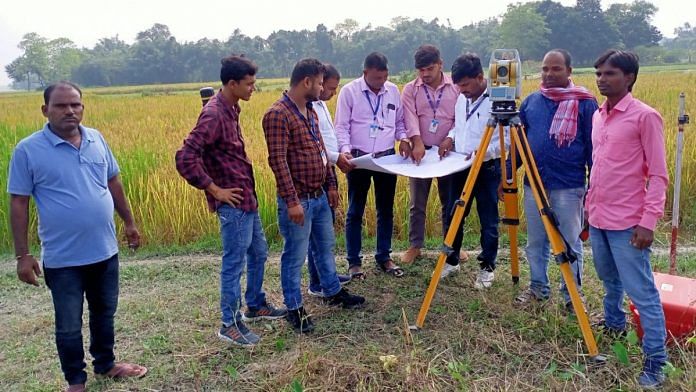Sunil Shah was eating lunch at his home in Vishanpur village in Bihar’s Saharsa district when his neighbours barged into his house to tell him that someone was occupying his land. Shah had to react instantly. Surveyors would soon be knocking on his door for the mammoth land digitisation programme currently underway in Bihar. If this parcel of land with his name to it ‘is not in the computer’, he will lose it forever.
The 36-year-old farmer left his food half eaten, gathered some of his men, and armed with sticks ran to his fields—only to return bloodied and bruised. They had been beaten up by the ‘new owners’ of the land.
Shah insists that he never sold his ancestral property. He claims that the 18 kattha of disputed land had been fraudulently sold by the village strongman and his neighbour, Ashrafi Mukhiya.
In the last six months, as a small army of surveyors fanned out across 20 districts in Bihar, more and more cases of such land disputes are cropping up. Incidents of illegal land grabbing, and crime, are on the rise. Neighbours are fighting. Siblings are turning on each other. Relationships have deteriorated and disputes culminate in bloody clashes before the matter goes to the police or court.
Shah’s case is now in Saharsa district court, but the matter has acquired a renewed urgency. Bihar Chief Minister Nitish Kumar has set a 2024 deadline to complete the land digitisation programme, which promises to transform how land can be monetised and bequeathed, and untangle tedious compensation red tape.
But first, the authorities have to figure out who the legal owners of the land are.
District courts are swamped with land owners accusing each other of fraud. But justice can take years, and Shah is running out of time.
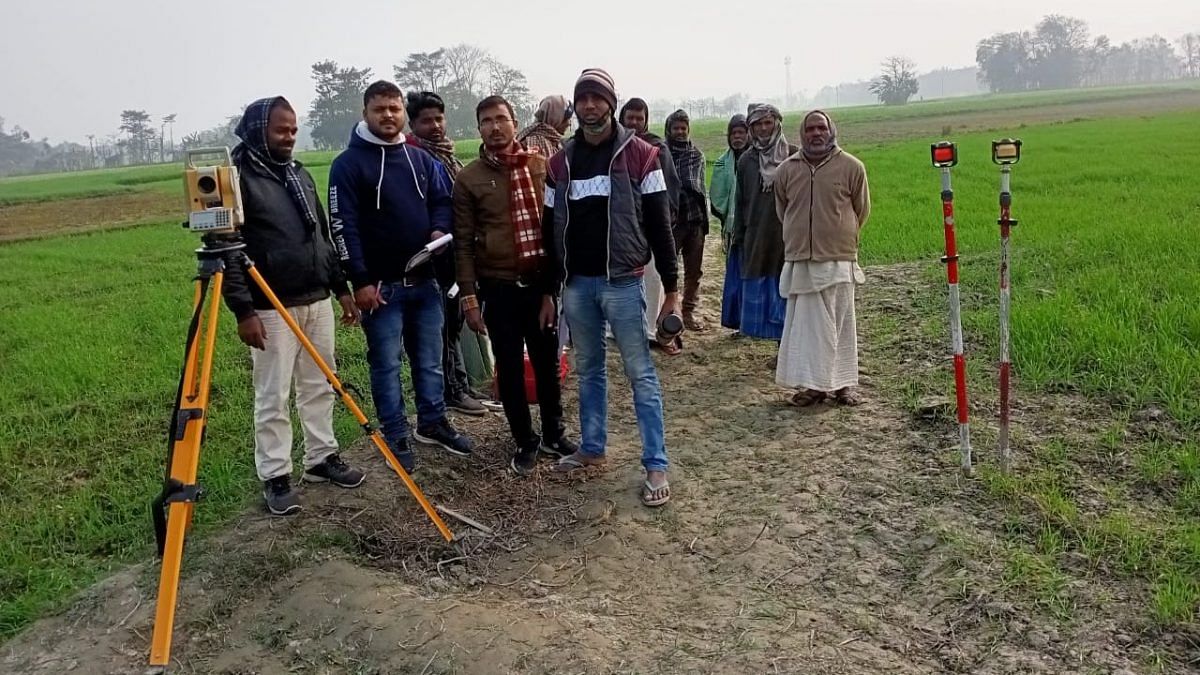
“I have spent so many days running around trying to get my land back. And now the survey has been taken up. If the surveyors come here and I don’t show the [ownership] paper, the land will go away,” he says in despair.
Much of land ownership in rural India is informal and poorly recorded. In the past, Union governments have attempted to get the ball rolling with limited success. In 2016, Prime Minister Narendra Modi announced the launch of Digital India Land Records Modernization Programme. Several states including Gujarat and Andhra Pradesh have already taken it up, but progress is slow. No state has completed the survey.
In poll-bound Gujarat, it has become a political issue with the Aam Aadmi Party (AAP) chief Arvind Kejriwal promising to conduct a fresh land survey in the state. In 2018, the Gujarat BJP government suspended the survey after it received 18,000 objection applications from farmers.
Bihar has been conducting the survey in fits and starts since 2011: 96.3% villages are yet to be surveyed. The state government has ramped up the process through 208 camps in 89 zones across 20 districts. But so far, no district has been surveyed completely, and the ensuing tension is spilled onto panchayats, police stations and courts.
Also read: Ghost addresses, empty offices — the shadowy world of registered unrecognised political parties
Packed district courts
At Saharsa district court, advocate Bhogendra Mishra is surrounded by clients shouting over the whirring of the old fans in the room. He clutches a sheet of paper listing seven cases he received in a single day—all related to land disputes. Of these, three are criminal cases and the rest are related to civil issues.
“The government is saying the survey will reduce land disputes, but it is not helping anyone. It has only increased the land dispute manifold,” says the advocate. Mishra blames the survey for the disputes. “People’s land is being stolen. Not everyone has the documents. The whole process is too costly,” he says, while chewing a betel nut.
He has a steady flow of clients—farmers seeking information on documents, cancellation of titles, and raising questions on the survey itself. Local police, too, are unusually busy.
According to the National Crime Records Bureau (NCRB), land disputes are one of the main reasons for crime in Bihar. Over the last two-three years, the Nitish Kumar government has made an effort to settle land-related matters, with mixed results.
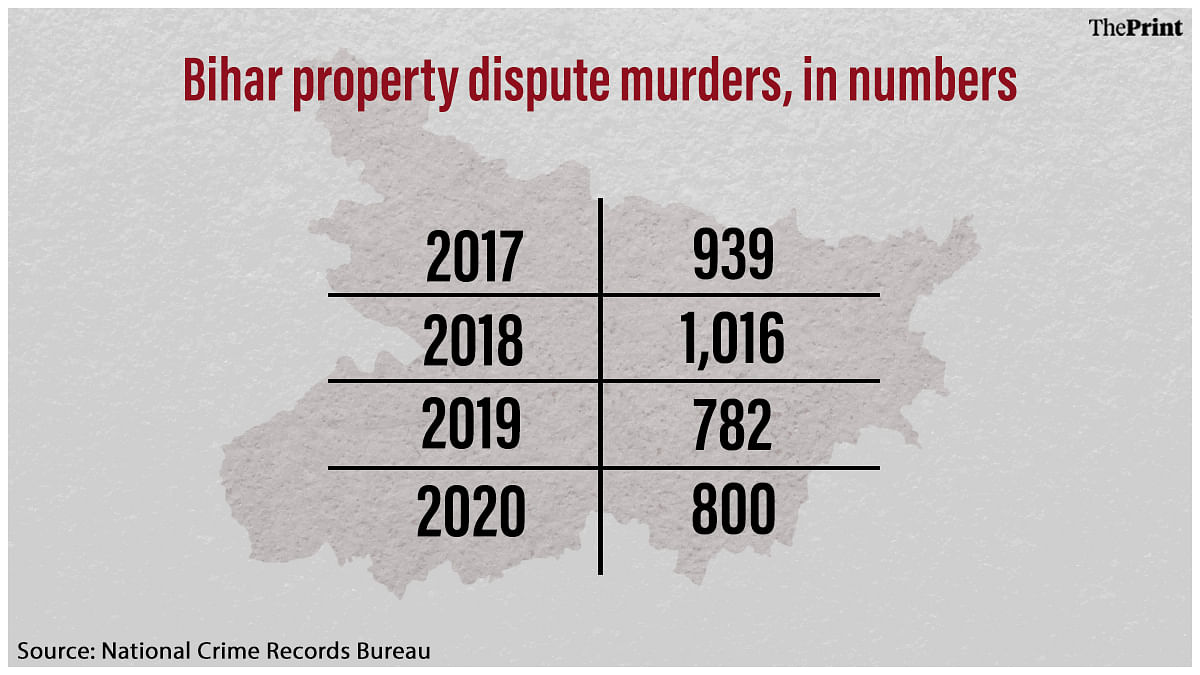
Last year, there were 3,336 cases in Bihar related to land disputes. Of the 1,081 murders recorded that year, property disputes were the motive for 635 deaths, accounting for 59 per cent of all murders.
Also read: Indian states taking ownership of land records digitisation, up to govt to expand it now: Study
Survey is the solution?
The Bihar government claims the survey will solve all land disputes. Jai Singh, director of land records and dimensions in the Revenue Department, has two years to complete what the government has been unable to do in more than a decade. In October, Singh took action against 50 workers after being dissatisfied with the land survey work. He’s following orders from the top: Nitish Kumar has directed all officials to expedite the survey at the district level with the aim of reducing land disputes.
Saharsa’s additional district magistrate (ADM) Binay Kumar Mandal, who is the top land official in the district, also adheres to the government’s stand. It will reduce these disputes, he says confidently, but then quickly admits that the two-year target set by the CM will pose “many challenges”.
“With drones and cameras, aerial photographs of the entire land of Bihar have been taken. A map has also been prepared,” he says. And surveyors have been given electronic total station (ETS) machines to take accurate land measurements quickly.
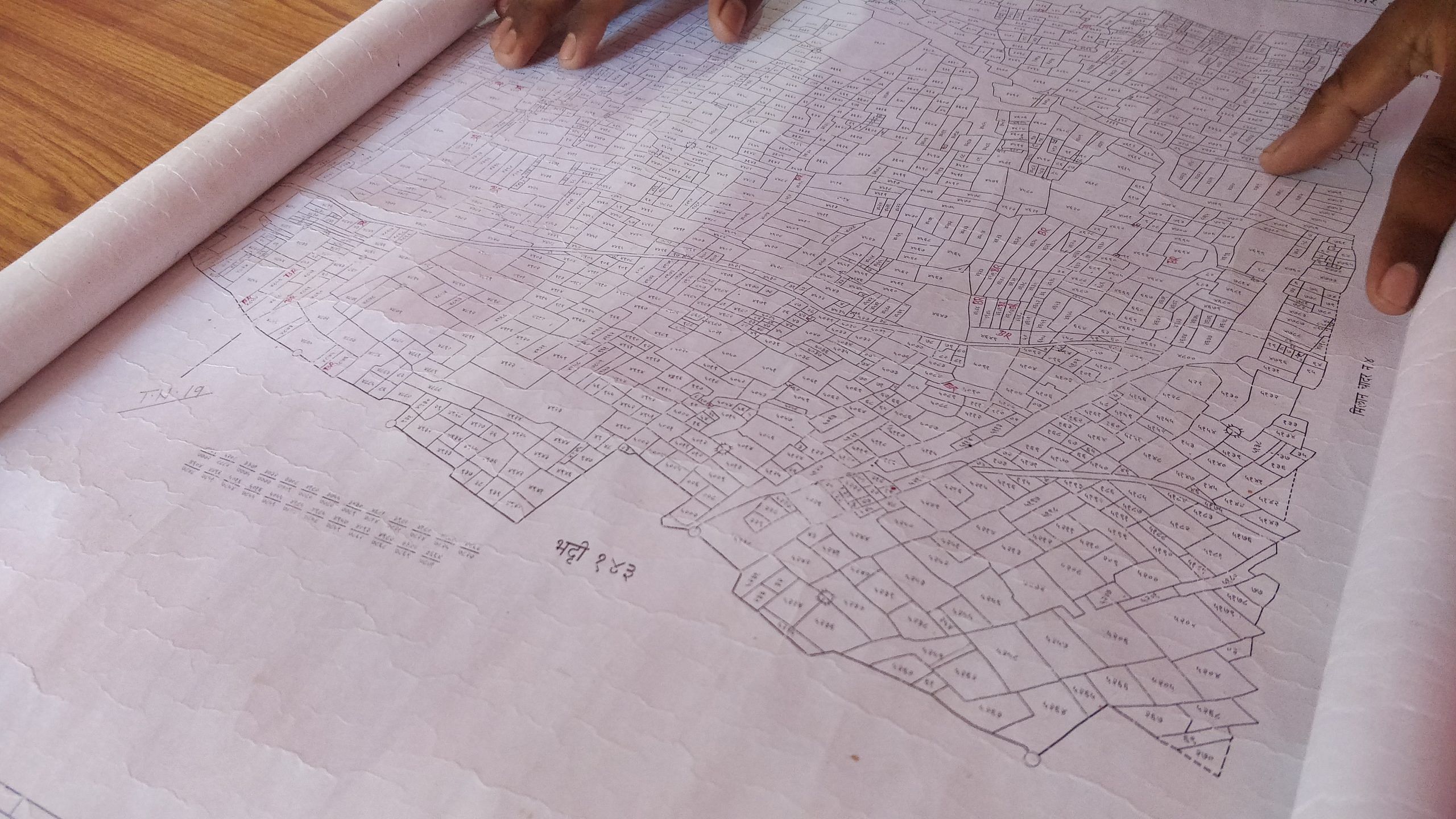
“Disputes are there. Many things are still unclear. People will know the whole situation once the survey is done,” Mandal added.
But drones and cameras and high-tech machines will not be able to answer the all-important question behind these disputes: Whose land is it anyway?
Also read: India has to attack causes of land litigation. Modi’s Ease of Doing Business depends on it
British legacy
The answer got lost before Independence. In 1902, the British government conducted a survey in Bihar, called the Cadastral Survey, say officials. Then in 1965, survey work started again. It was called Revisional Survey but was not recognised due to irregularities and land disputes started increasing.
Even for the Revisional Survey, the government had to refer to the Cadastral Survey to determine land ownership. “But at the time, literacy rates were low. People were not aware and did not have resources. So, many people did not get the documents or deeds,” explains Aviral Pandey, assistant professor at the AN Sinha Institute of Social Studies.
There were disputes even during British rule, but Pandey is of the view that administration at the time did not have the interest of the public in mind. “They showed speed in conducting the survey, but in today’s democracy, it is not possible to get such a process done quickly. It will anger the public.”
Ideally, the government should have these documents. “But in title disputes, we are finding out now that these documents are not available even with the government,” he added.
Perhaps land records were lost in transit when Bihar’s districts were being drawn out. It’s also possible that the papers degraded with time. The digitisation process involves a person manually entering ownership and land details into the database.
And even the smallest alphabetical or numerical mistake means that property owners have to go through the whole process again. “This system is creating irritability among the people and increasing dissatisfaction. By asking for people to submit documents, the government is putting the responsibility of its failure on the people,” said Pandey.
Also read: Indian courts clogged with land disputes because laws keep conflicting each other
Find the papers
The clamour and angst has spilled into Bihar’s Panchayat Sarkar Bhawans as well. One such Bhawan — around 15 km from Saharsa—is surrounded by bamboo trees followed by green fields for as far as the eye can see.
Sixty-two-year-old Kapleshwar Paswan, who needs two walking sticks to support him, knows this building well. He has met government officials to obtain ‘papers’ for the 21 dismil (around 5 katthas) land he inherited from his father. But it was only during the survey that he learned that nine of the 21 dismils had been sold. Registry of the land was done illegally, he claimed.
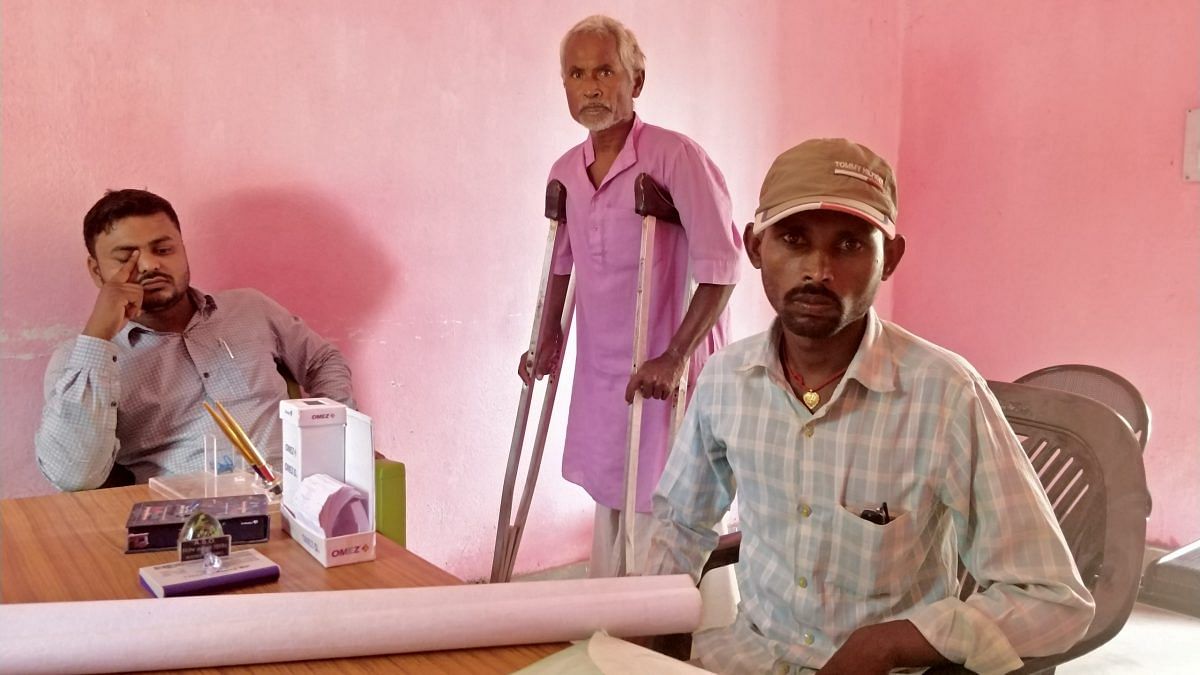
“When I came to know about this during a special survey, the officials asked for land papers,” he said. It’s why he’s doing the rounds of the Panchayat Sarkar Bhawan. “But the land receipt is not being given as the area strongman has already sold a part of the land.”
Every day, property owners arrive at Panchayat Sarkar Bhawan at Patarghat with files and documents showing proof of ownership. They wait for hours shuffling from one office to another; most return home disappointed.
Inside, Rahul Kumar, who is in-charge of the survey camp, heads to a room that was originally allotted to the mukhiya of the panchayat along with two staffers. “The current survey is being done on the basis of the Revisional Survey done in 1965. But there was a lot of confusion in that survey, and it is not valid in many places,” admits Kumar.
All the land owners are busy trying to find or get papers of their land. “Nobody has the paper. If someone has the paper, he is not giving it to his brothers as he wants to get land in his own name,” says Kumar.
When Vinod Kumar asked his brothers for the documents of their family land in Saharsa, they refused. There are no documents backing his claim in the local survey or block office. “We are already fighting, and if the wrong survey is done, then the dispute will only increase,” he said.
It’s an administrative nightmare. As part of the process, land owners have to submit the deeds, which are then matched with the old khatiyan (records of rights). Only then does the administration take up the work of measuring the land and giving the land parcel map (LPM) to the owner. If there are any defects in the LPM, the owner can appeal against it.
Neeraj Kumar, assistant settlement officer of Saharsa district, says that there is a mechanism in place when documents cannot be produced or there is a dispute. “In that case, we go there and investigate,” he said.
Given the track record in Bihar and other states, villagers are cynical, and many claim they are being harassed by paperwork, officials, and digitisation. More than 60 percent of the crime cases are related to land, CM Kumar had said in 2020.
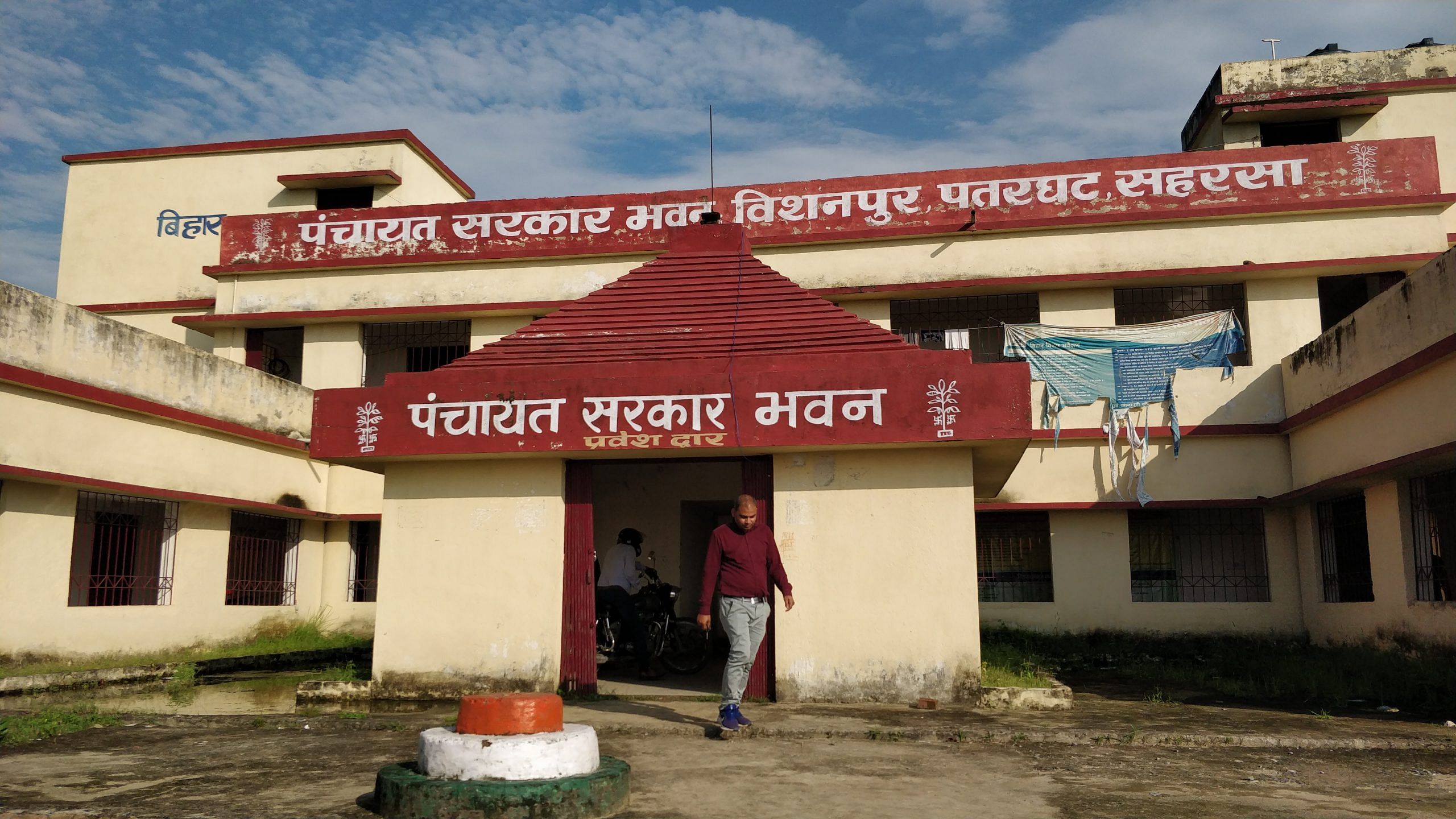
On the other side of the divide are government officials, who are overwhelmed with the number of complaints coming their way.
“More than 75 percent complaints that come to the DM office are related to land disputes. People’s cases are in court, yet they come to the administration with complaints,” said one senior staff in Saharsa collectorate, on the condition of anonymity. It’s a similar situation at the janta darbar, which is held every week in local police stations.
Shortage of ‘amins’ or personnel in the land department, whose job it is to measure the land, is one of the reasons for the many delays. The Nitish Kumar government has started the process of appointing more than 8,000 amins, all civil engineers. But a government amin alleges that the new appointees lack the skills and are not being trained properly.
Also read: For 31 paise owed to SBI, land deal was stuck for over 2 years. Until Gujarat HC intervened
Sarpanches’ court
The Bihar government has empowered village sarpanches to settle land-related matters, under which such cases are heard in the Gram Kachahari. The ‘court’ was held only once a week, but to speed up the process, instructions have been given to hold them twice a week.
It’s what’s keeping Tamatar Paswan busy these days. The sarpanch of Vishanpur Panchayat sits on a chair in his house with a long list of disputes. Outside, dogs roam the dirt road, while a group of people sit outside a bamboo machaan. They, too, have a long list of land dispute stories.
It circles back to ownership documents. “Most people do not have them. Disputes are increasing. Sometimes, there is even a fight,” said Tamatar. Adding to the tension are rumours that disputed land will go to the Bihar government.
In Bihar, owning land is more than just a means to an end. It’s about prestige and social standing, says Aviral Pandey. And everyone’s pinning their hope on the local courts. In May 2022, a court in Arrah gave a verdict after 108 years in a land dispute case.
“It shows that people can obtain justice, though some may die in this time taking process,” says Mishra.
Many have even made peace with such court delays, but now there’s a more urgent threat. Digitisation of land records is birthing new dilemmas and already spurring family disputes that lay dormant for decades.
(Edited by Prashant)


